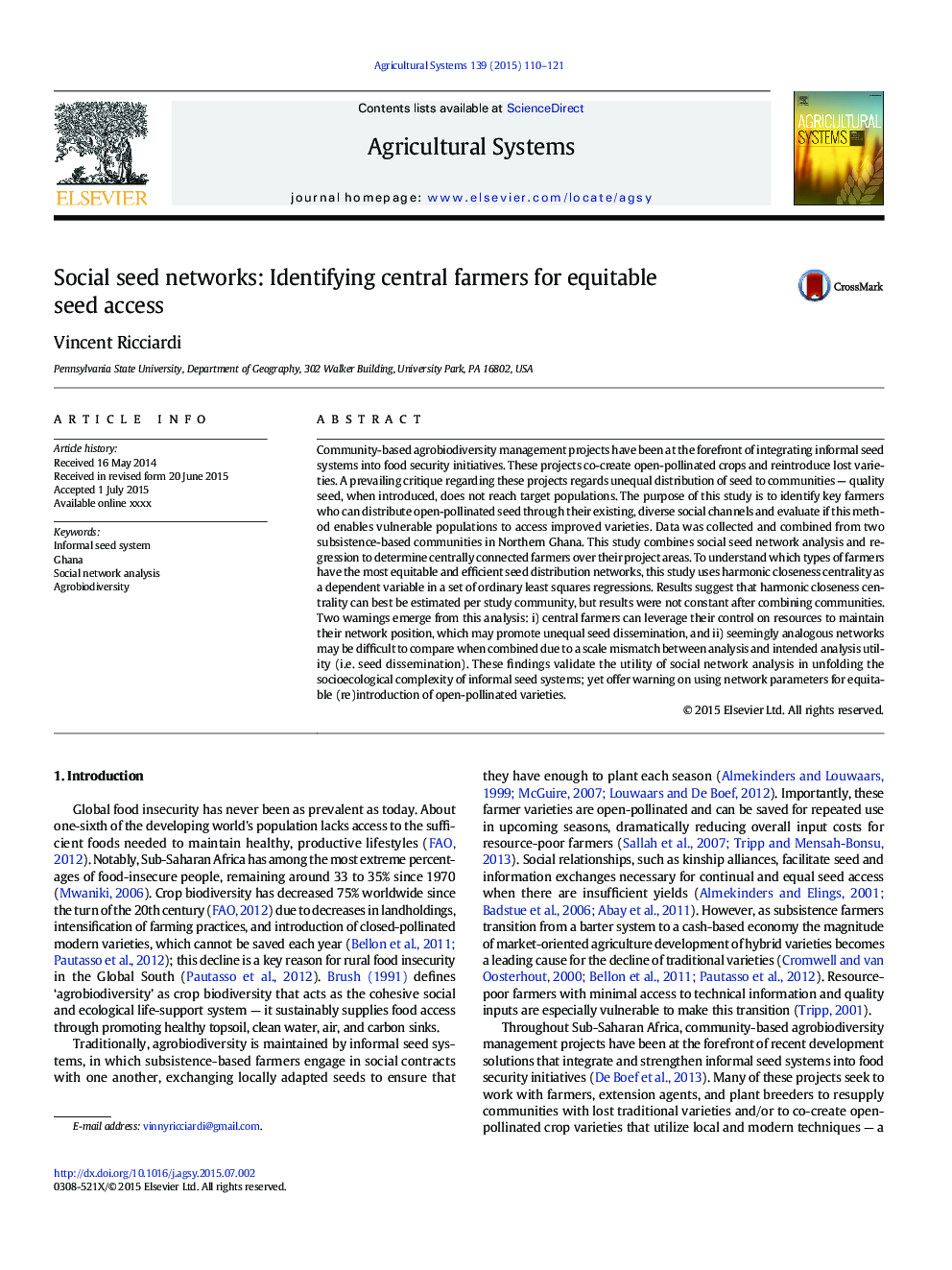| کد مقاله | کد نشریه | سال انتشار | مقاله انگلیسی | نسخه تمام متن |
|---|---|---|---|---|
| 6368473 | 1623231 | 2015 | 12 صفحه PDF | دانلود رایگان |
عنوان انگلیسی مقاله ISI
Social seed networks: Identifying central farmers for equitable seed access
ترجمه فارسی عنوان
شبکه های بذر اجتماعی: شناسایی کشاورزان مرکزی برای دسترسی به عادلانه دانه
دانلود مقاله + سفارش ترجمه
دانلود مقاله ISI انگلیسی
رایگان برای ایرانیان
کلمات کلیدی
سیستم دانه غیر رسمی، غنا، تجزیه و تحلیل شبکه شبکه، تنوع زیستی،
موضوعات مرتبط
علوم زیستی و بیوفناوری
علوم کشاورزی و بیولوژیک
علوم کشاورزی و بیولوژیک (عمومی)
چکیده انگلیسی
Community-based agrobiodiversity management projects have been at the forefront of integrating informal seed systems into food security initiatives. These projects co-create open-pollinated crops and reintroduce lost varieties. A prevailing critique regarding these projects regards unequal distribution of seed to communities - quality seed, when introduced, does not reach target populations. The purpose of this study is to identify key farmers who can distribute open-pollinated seed through their existing, diverse social channels and evaluate if this method enables vulnerable populations to access improved varieties. Data was collected and combined from two subsistence-based communities in Northern Ghana. This study combines social seed network analysis and regression to determine centrally connected farmers over their project areas. To understand which types of farmers have the most equitable and efficient seed distribution networks, this study uses harmonic closeness centrality as a dependent variable in a set of ordinary least squares regressions. Results suggest that harmonic closeness centrality can best be estimated per study community, but results were not constant after combining communities. Two warnings emerge from this analysis: i) central farmers can leverage their control on resources to maintain their network position, which may promote unequal seed dissemination, and ii) seemingly analogous networks may be difficult to compare when combined due to a scale mismatch between analysis and intended analysis utility (i.e. seed dissemination). These findings validate the utility of social network analysis in unfolding the socioecological complexity of informal seed systems; yet offer warning on using network parameters for equitable (re)introduction of open-pollinated varieties.
ناشر
Database: Elsevier - ScienceDirect (ساینس دایرکت)
Journal: Agricultural Systems - Volume 139, October 2015, Pages 110-121
Journal: Agricultural Systems - Volume 139, October 2015, Pages 110-121
نویسندگان
Vincent Ricciardi,
